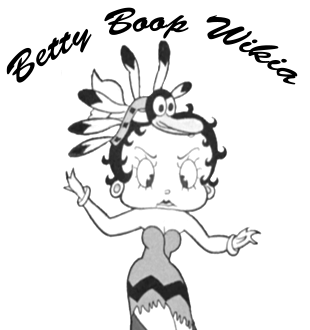Bou-Dou-Ba-Da-Boum
The misinformation during the "$250,000 Infringement Lawsuit" is that "Bou-Dou-Ba-Da-Boum" is scat. However the "Betty Boop Wikia Fandom" did some research, and it is actually the name of a person, an African soldier, but the way the song is recorded, it sounds like general scat-singing. When Felix Mayol sings the song, he shouts "Bou-Dou-Ba-Da-Boum" after each sentence.
Felix Mayol - "Bou-Dou-Ba-Da-Boum" (1913)
Felix Mayol was referenced in the $250,000 Infringement Lawsuit, where it was brought up that Helen Kane "might" have taken her "scat" lyrics from the 1913 song titled "Bou Dou Ba Boum" (which Kane denied by claiming she never heard of a French Boop),[1] as one of Mayol's scat lyrics were "Bou-Doo-Da-Ba-Boo", which means he had Booped even "earlier" than Baby Esther, who used "Boo-Boo-Boo" and "Doo-Doo-Doo" in her cabaret show. Mayol used to perform the song live in the early 1910s and recorded the song in 1915. The song has several alternative titles, "Bou-Dou-Ba-Boum", "Bou-Dou-Ba-Da-Bouh", "Bou-Dou-Ba-Boum", "Bou-Doo-Da-Ba-Boo", but the correct title is in fact "Bou-Dou-Ba-Da-Boum".
Unfairly Imitated on Screen Says Helen Kane
If the French had a name for her unique style of singing way back in 1914 Helen Kane hasn't heard of it. Miss Kane who seeks $250,000 damages from Max Fleischer cartoonist, the Fleischer Studios and the Paramount Publix Corporation on the ground that the Betty Boop screen cartoons imitate her singing and unfairly competitive way testified today that the "Boop-Boop-a-Doop" aka "Boop-Oop-a-Doop" technique was her own contribution to music. Had she ever heard of a French song published in 1914 and called "Bou-Bou-Ba-Ba-Bou?" (which was actually published in 1913), asked defense attorney, Louis Phillips, Helen replied that she hadn't and the trial was resumed.
"Bou-Dou-Ba-Da-Boo"(1913)
Félix Mayol "Bou-Dou-Ba-Da-Boo!" (1913)
Bou-Doo-Da-Ba-Boo, recounts the misadventures of a brave Senegalese soldier (called "Turco, a term normally reserved only Algerian riflemen) involved in the review of July 14 in Paris. Member of the shindig Regiment (music frontline soldiers), he meets a young employee working at the races, a "little errand," with which he knows a brief idyll. But military duty requires him to start fighting in the Sahara (at before the war Saharan borders are not all "pacified"). Bou-doo-da-ba-boo finds a glorious death, always thinking of his beloved, whom he will submit his cross of honor by a comrade of the Legion. The song helps convey these representations. The black populations are re-humanized, but always from a racial and inferiorizing perspective. Stereotypes abound in most of the pieces evoking the indigenous troops, especially those dedicated to the black force, which fascinates in particular. A colonial song created in 1913 illustrates it perfectly. Albert Valsien composes music and Lucien Boyer writes the lyrics of the piece titled "Bou-Dou-Ba-Da-Bouh".
"Bou-Dou-Ba-Da-Bouh"(Lyrics)
Lyrics:
Parmi les Sénégalais Qu'on fit venir pour la revue L'jour du Quatorze Juiller Se trouvait la chose est connue Un grand gaillard à la peau noire Aux dents comme l'ivoire Je vais vous conter son histoire Dans cette chanson D'abord voici le nom De ce brave garçon Refrain Y s'app'lait Bou-dou-ba-da-bouh Y jouait d'la flûte en acajou Je n'exagèr' pas C'était l'plus beau gars De tout' la Nouba Ah ! Ah ! Quand son régiment défilait Au son joyeux flageolets Le Tout-Tombouctou Admirait surtout Celui d'Bou-dou-ba-da-bouh En se promenant un matin Au coin d'la ru' du Quatr' Septembre Il connut un p'tit trottin Aux cheveux dorés comme l'ambre Ils s'aimèrent toute une semaine Mais l'Turco.. pas d'veine R'partit sur la terre africaine Ce fut déchirant Et la bonne enfant Disait en pleurant Refrain Y s'app'lait Bou-dou-ba-da-bouh Y jouait d'la flûte en acajou Et voilà qu'il s'en va [variante Je n'exagèr' pas] Dans le Sahara [variante C'était l'plus beau gars] Avec la Nouba Ah ! Ah ! Tout's les femm's sont folles de lui Et c'qui m'désole c'est qu'aujourd'hui Cell's de Tombouctou Doivent faire joujou Avec Bou-dou-ba-da-bouh Ell' ne cessait de gémir Et s'lamentait de son absence Il faut bien en convenir L'Turco l'avait prise par les sens Dans l'affolement de son être Elle osa s'permettre D'écrir' même dans une lettre À M'sieur Poincarré J'ai le coeur si navré ! Où est mon adoré ? Refrain Y s'app'lait Bou-dou-ba-da-bouh Y jouait d'la flûte en acajou Savez-vous oui-da Quand il reviendra Avec la Nouba ? Ah ! Ah ! Il jou' si bien du flageolet Que si l'État m'payait son billet J'vais aller, c'est fou Jusqu'à Tombouctou R'trouver Bou-dou-ba-da-bouh Un soldat de la Légion Un jour vint frapper à sa porte Bien qu'ell' tremblât d'émotion Ell' se contint et resta forte Parlez-moi, vite, lui dit-elle! Voilà... Mad'moiselle... Je vous apporte des nouvelles D'un de mes amis À qui j'ai promis D'vous dire... c'que... j'vous dis Refrain Y s'app'lait Bou-dou-ba-da-bouh Il fit son devoir jusqu'au bout Et dans un combat Il est mort là-bas Avec la Nouba Ah ! Ah ! Oui mais en mourant sur son coeur Il a pris sa bell' croix d'honneur Mam'zelle c'est pour vous C'était l'seul bijou Du pauvr' Bou-dou-ba-da-bouh!


